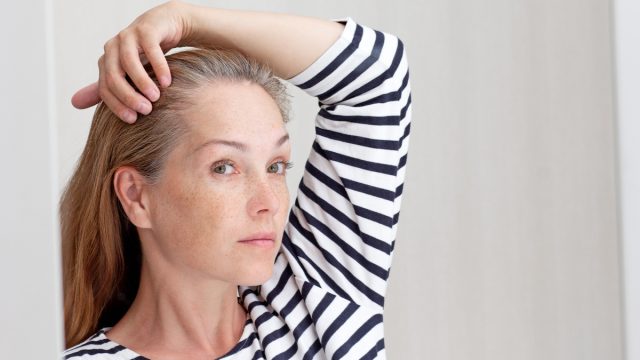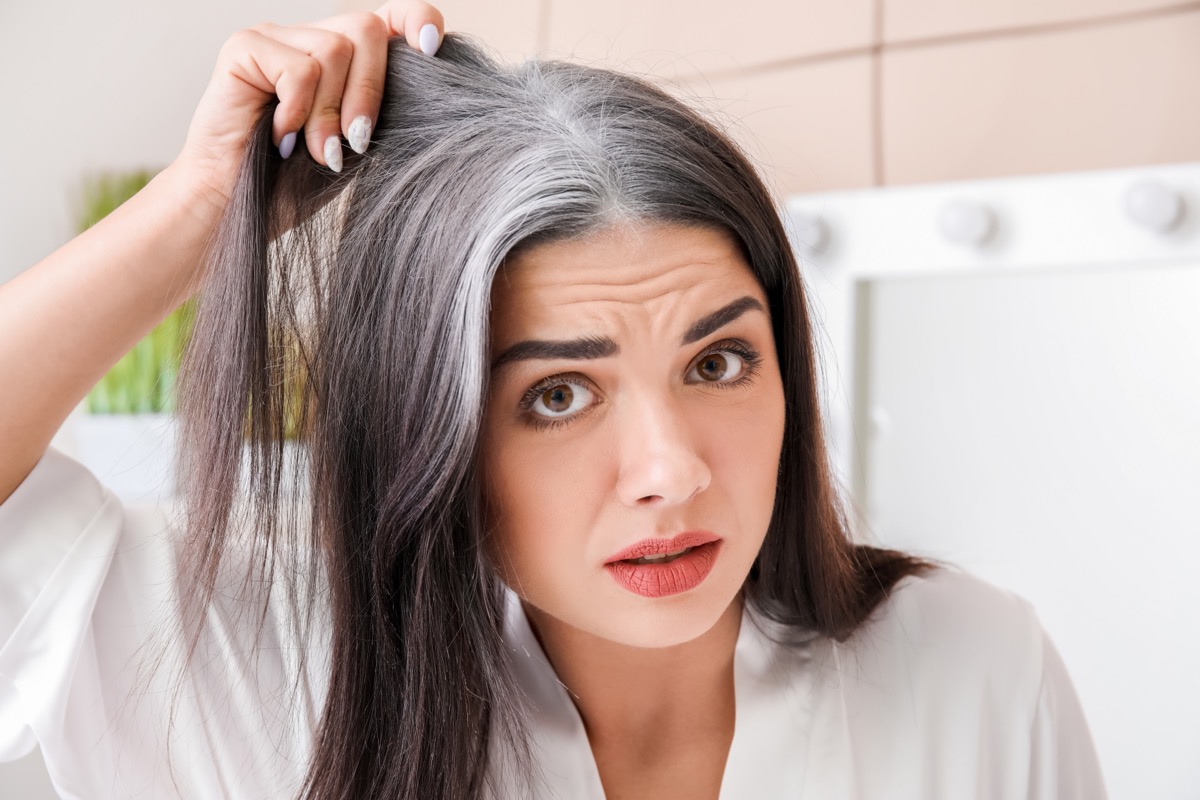3 Tips to Avoid Getting Gray Hair Prematurely, Naturopathic Doctor Reveals

In a society obsessed with youthful appearances, embracing your silver strands in confidence can be both beautiful and powerful. This is true at any age. However, if you hope to protect your natural color for as long as possible, you’re not alone. One recent study found that 72 percent of women “dread going gray,” believing that it ages them more than any other physical feature. The good news? If you’re wondering how to avoid premature gray hair, naturopathic doctor Janine Bowring, ND, says there are three key ways to do this—and they’re all extremely easy.
RELATED: 6 Best Hair Coloring Tips for Winter, According to the Pros.
Here’s why your hair can go gray prematurely.

In a recent TikTok video, Bowring suggests that dying your hair may actually accelerate the process of going gray, while simultaneously covering up your fading color.
However, it can also happen due to natural changes that occur in the hair and scalp over time. “This is caused by a lack of melanin because of a buildup of hydrogen peroxide in the hair follicles. This is usually caused by stress and oxidative stress which kills those melanocyte cells,” Bowring explains, referring to the cells that produce the pigment in your skin and hair.
To slow the process, she recommends these three tips.
1
Get plenty of vitamin D.

The first thing your melanocyte cells need to continue their production of pigment is vitamin D, the doctor explains: “So more natural sunlight exposure is going to help prevent that graying of the hair.”
In addition to the vitamin D your body naturally produces after sun exposure, you can also get vitamin D through select foods, including salmon, trout, mushrooms, eggs, fortified cereals, milk, and juices. Taking a supplement can help further increase your intake, though you should discuss this option with your doctor before adding it to your health routine.
RELATED: 7 Secrets for Growing Out Gray Hair, According to Stylists.
2
Load up on these minerals.

Bowing says the next thing you need to do to help prevent premature gray hair is to eat foods rich in certain minerals. In particular, she says you’ll require “magnesium, copper, zinc, iron, and calcium for those healthy melanocytes.”
You should be able to ingest most of your essential minerals by eating a varied, whole foods-based diet that includes fruits, vegetables, grains, lean protein, and dairy, Harvard Health Publishing notes. However, some people find it difficult to get enough calcium and magnesium through their diets, in which case your doctor may recommend a supplement.
3
Get your B vitamins through whole food sources.

Finally, Bowring says that getting a sufficient amount of B vitamins is also very important. “Now I’m not saying to take a synthetic B vitamin—I don’t like that. Always get your B vitamins from whole food vitamins and whole food sources,” she recommends.
However, it’s important to note that there are many different types of vitamin B, and you may need to get different types from different food sources. For instance, according to the U.K.’s National Health Services (NHS), you can get thiamin (vitamin B1) from peas, nuts, fresh fruits, and liver, while you can get pyridoxine (vitamin B6) from poultry, pork, soybeans, oats, milk, and more. Speak with your doctor or nutritionist to learn more about getting B vitamins through your diet.
For more hair-care advice sent directly to your inbox, sign up for our daily newsletter.
Best Life offers the most up-to-date information from top experts, new research, and health agencies, but our content is not meant to be a substitute for professional guidance. If you have health questions or concerns, always consult your healthcare provider directly.